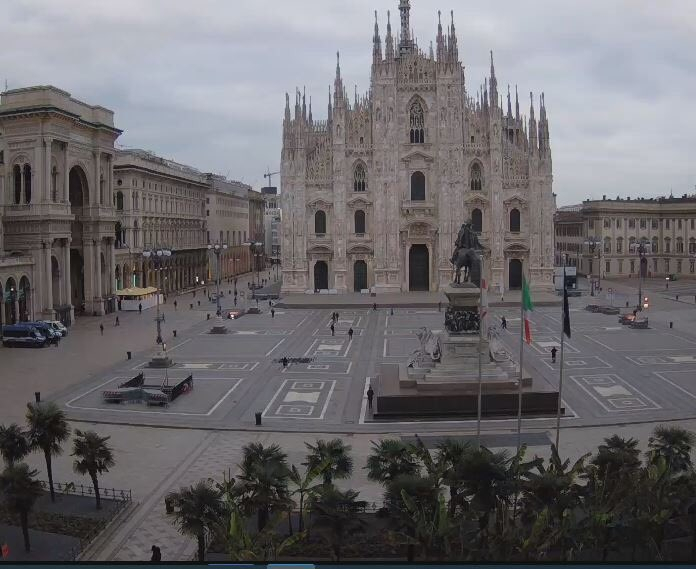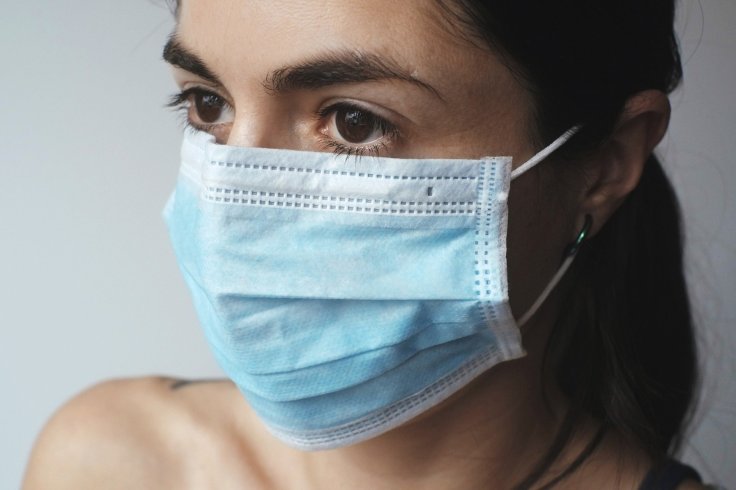The world's wealthiest nations poured unprecedented aid into the traumatized global economy on Thursday as coronavirus cases ballooned in the current epicentre Europe even as they waned at the pandemic's point of origin, China.
With almost 228,000 infections and more than 9,200 deaths so far, the epidemic has stunned the world and drawn comparisons with painful periods such as World War Two, the 2008 financial crisis and the 1918 Spanish flu.
"This is like an Egyptian plague," said Argentinian hotelier Patricia Duran, who has seen bookings dry up for her two establishments near the famous Iguazu Falls.
"The hotels are empty - tourist activity has died."

Coronavirus effect
Tourism and airlines have been particularly battered, as the world's citizens hunker down to minimize contact and curb the spread of the flu-like COVID-19. But few sectors have been spared by a crisis threatening lengthy global recession.
Markets have suffered routs unseen since the 2008 debacle, with investors rushing to the U.S. dollar as a safe haven, but European and U.S. stocks made a tentative recovery on Thursday and oil prices rebounded though the reprieve may be brief.
Policymakers in the United States, Europe and Asia have slashed interest rates and opened liquidity taps to try to stabilise economies hit by quarantined consumers, broken supply chains, disrupted transport and paralysed businesses.
The virus, thought to have originated from wildlife in mainland China late last year, has jumped to 172 other nations and territories with more than 20,000 new cases reported in the past 24 hours - a new daily record.
Cases in Germany, Iran and Spain rose to more than 12,000 each. An official in Tehran tweeted that the coronavirus was killing one person every 10 minutes.

LONDON LOCKDOWN?
Britain, which has reported 128 deaths, was closing dozens of underground stations in London and ordering schools shut from Friday.
Some 20,000 soldiers were on standby, Queen Elizabeth headed for sanctuary in the ancient castle of Windsor, and the Tower of London was to close along with other historic buildings.
Italian soldiers transported corpses overnight from an overwhelmed cemetery in Europe's worst-hit nation where nearly 3,000 people have died. Germany's military was also readying to help despite national sensitivities over its deployment dating back to the Nazi era.
Supermarkets in many countries were besieged with shoppers stocking up on food staples and hygiene products. Some rationed sales and fixed special hours for the elderly.
Solidarity projects were springing up in some of the world's poorest corners. In Kenya's Kibera slum, for example, volunteers with plastic drums and boxes of soap on motorbikes set up handwashing stations for people without clean water.
Russia reported its first coronavirus death on Thursday.
Amid the gloom, China provided a ray of hope, as it reported zero new local transmissions in a thumbs-up for its draconian containment policies since January. Imported cases, however, surged, accounting for all 34 new infections.
The United States, where President Donald Trump had initially played down the coronavirus threat, saw infections surpass 9,400 across all 50 states and deaths reach at least 151.
Trump has infuriated Beijing's communist government by rebuking it for not acting faster and drawn accusations of racism by referring to the "Chinese virus".
"EXTRAORDINARY TIMES"
In a bewildering raft of financial measures around the world, the European Central Bank launched new bond purchases worth 750 billion euros ($817 billion). That brought some relief to bond markets and also halted European shares' slide.
"Extraordinary times require extraordinary action," ECB President Christine Lagarde said, amid concerns that the strains could tear apart the euro zone as a single currency bloc.
The U.S. Federal Reserve rolled out its third emergency credit programme in two days, aimed at keeping the $3.8 trillion money market mutual fund industry functioning. That helped Wall Street shares creep into positive territory after the worst selloff since the 2008 sub-prime crisis.
China was to unleash trillions of yuan of fiscal stimulus and South Korea pledged 50 trillion won ($39 billion).
The desperate state of industry was writ large in Detroit, where the big three automakers - Ford Motor Co, General Motors Co and Fiat Chrysler Automobiles NV - were shutting U.S. plants, as well as factories in Canada and Mexico.
With some economists fearing prolonged pain akin to the 1930s Great Depression but others anticipating a post-virus bounceback, gloomy data and forecasts abounded.
In one of the most dire calls, J.P. Morgan economists forecast the Chinese economy to drop more than 40% this quarter and the U.S. economy to shrink 14% in the next. Rating agency Moody's prepared for mass downgradings.
There was a backlash against conspiracy theories and rumours circulating on social media, with Morocco arresting a woman who denied the disease existed.
And in Brazil, where President Jair Bolsonaro initially labelled the virus "a fantasy", more members of the political elite fell ill. At night, housebound protesters banged pots and pans, shouting "Bolsonaro out!" from their windows.









